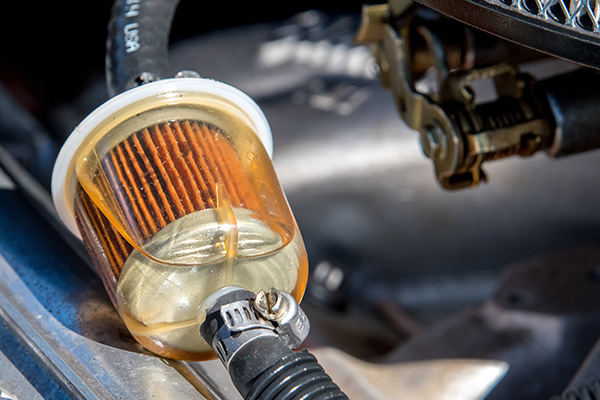
Driving with a fuel leak is not just a minor inconvenience but a serious safety hazard. Imagine you're driving down the road, and you catch a whiff of gasoline. It's easy to dismiss it, thinking it's just from another vehicle. But what if it's from your own car? Fuel leaks can be extremely dangerous, both to the driver and to others on the road. Let's explore why driving with a fuel leak is a risk you shouldn't take and what you should do if you suspect one.
The Immediate Dangers of a Fuel Leak
Fuel leaks present an immediate danger primarily because gasoline is highly flammable. A small spark, a hot surface, or even a lit cigarette can ignite gasoline fumes, leading to potentially catastrophic fires or explosions. The risk isn't confined to while you're driving - a fuel leak can cause a fire even when your car is parked.
Moreover, gasoline is toxic. Prolonged exposure to its fumes can cause serious health issues, including headaches, dizziness, and respiratory problems. In confined spaces, such as your garage, these fumes can accumulate to dangerous levels, increasing the risk of fire and posing a significant health hazard.
Environmental Impact of Fuel Leaks
Beyond the immediate risks to your safety, fuel leaks also have severe environmental consequences. Gasoline contains harmful chemicals that can contaminate soil and water, posing a threat to wildlife and human health. Even small leaks can have a significant environmental impact over time. Thus, promptly addressing a fuel leak isn't just about your safety but also protecting the environment.
Signs You Might Have a Fuel Leak
Recognizing the signs of a fuel leak early can help prevent potential disasters. Here are some common indicators:
- Strong Smell of Gasoline: If you constantly smell gasoline, especially when your car is stationary, it's a clear sign of a potential leak.
- Puddles Under Your Car: Spotting puddles of liquid under your car can indicate a fuel leak, especially if the liquid is clear or slightly amber and has a gasoline smell.
- Decreased Fuel Efficiency: If you notice your car is using more fuel than usual, it could be because of a leak.
- Check Engine Light: While this light can indicate many issues, one potential cause is a problem with the fuel system, including leaks.
What Causes Fuel Leaks?
Several factors can cause fuel leaks, each with varying degrees of severity:
- Worn-Out Fuel Lines: Over time, fuel lines can become brittle and crack, leading to leaks. Regular inspection can help catch this issue early.
- Faulty Fuel Tank: Damage to the fuel tank itself, whether from an accident or corrosion, can cause leaks.
- Loose or Damaged Fuel Injectors: Fuel injectors can wear out or become damaged, leading to leaks.
- Poor Maintenance: Neglecting regular vehicle maintenance can increase the risk of developing fuel leaks.
Steps to Take If You Suspect a Fuel Leak
- Do Not Drive the Vehicle: Park your car in a safe location away from any sources of ignition.
- Ventilate the Area: If your car is in a garage, open doors and windows to disperse gasoline fumes.
- Call a Professional: Contact your technician or a towing service to safely transport your vehicle to a repair shop.
- Avoid Open Flames and Sparks: Stay away from smoking or using electronic devices near the vehicle.
Preventing Fuel Leaks
Prevention is always better than dealing with the consequences of a fuel leak. Here are some preventive measures:
- Regular Maintenance: Keep up with your car's maintenance schedule, including regular checks of the fuel system.
- Inspect Fuel Lines and Tank: Have a professional inspect your fuel lines and tank periodically for any signs of wear or damage.
- Monitor Fuel Efficiency: Pay attention to your car's fuel efficiency. A sudden drop can indicate a leak.
- Replace Old Parts: Replace old or damaged parts promptly to prevent leaks.
Ensure your car's fuel system is in top condition with a thorough inspection at Small World Auto Repair. Schedule your appointment now!